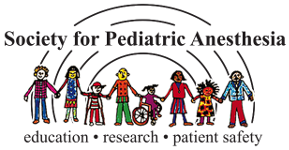Upon completion of residency, qualified physicians can undertake additional training to develop expertise in perioperative pediatric anesthetic care. Fellowship training in pediatric anesthesiology is a 12-month, Accreditation Council for Graduate Medical Education (ACGME) accredited experience. While each institution’s fellowship program is unique, all programs strive to develop pediatric anesthesiologists who are champions for children. Upon successful completion of the program, fellows are eligible for Pediatric Anesthesiology subspecialty certification through the American Board of Anesthesiology (ABA).
While pediatric anesthesiologists often work in the operating room, they also care for children in critical care settings, radiology suites, procedure rooms, cardiac catheterization suites, and clinics. These physicians often serve in hospital leadership and medical education due to the central role of anesthesiology in a well-functioning health system. Pediatric anesthesiologists work in freestanding children’s hospitals, academic medical centers, community hospitals, and ambulatory surgery centers.
Pediatric anesthesiology fellowship programs enable the acquisition and refinement of knowledge, skills, and attitudes necessary to become expert perioperative consultants in pediatric anesthesiology. Training includes the preoperative evaluation, preparation, and perioperative/postoperative anesthetic management of infants, children, and adolescents undergoing a wide range of diagnostic and therapeutic procedures. Fellows will also evaluate and treat children with acute and chronic pain disorders as part of an acute pain service and/or chronic pain clinic, and will learn to manage critically ill children in the pediatric intensive care unit.
Fellows will improve their medical knowledge, refine their patient care skills, participate in scholarship and research, and grow as medical professionals under the mentorship of pediatric anesthesiology faculty. The curriculum prepares the individual for success across many settings and can enhance opportunities for those looking to enter the private sector as well as academic institutions.
Visit the PAPDA website for the Fellowship Application Process.
